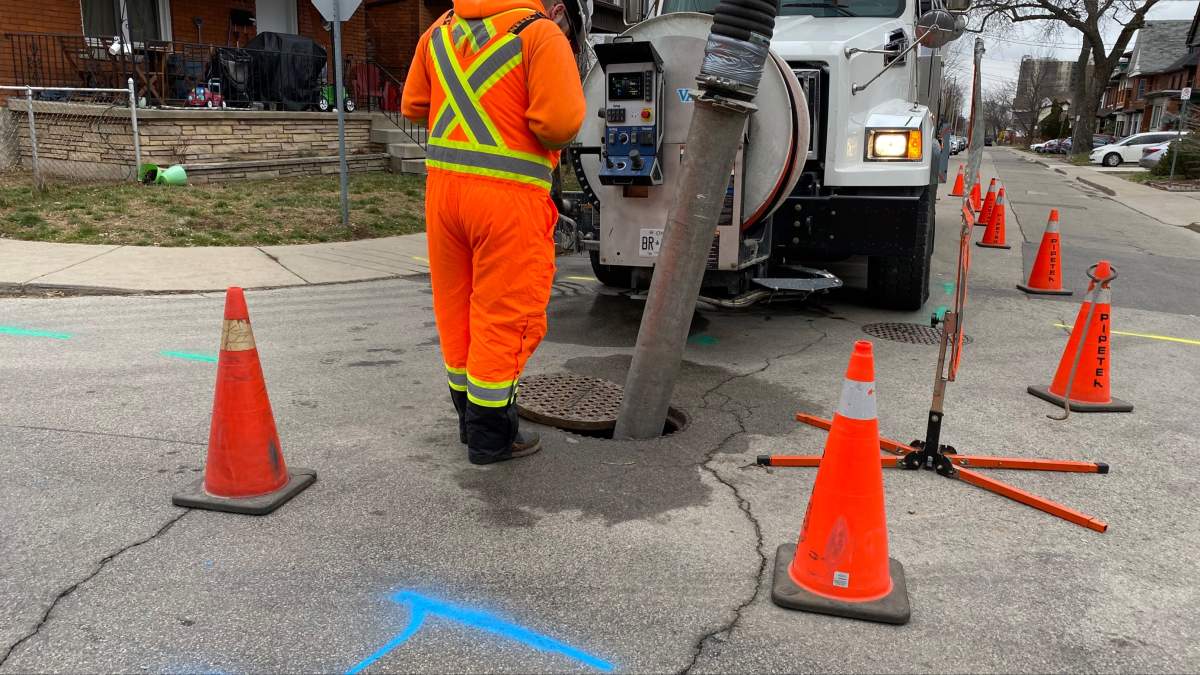The second phase of a project to reduce outdated combined sewer overflows in Hamilton is expected to add modern organization and technology to a pair of the city’s larger bodies of water.

The city’s director of water and wastewater planning says the ‘Real-Time Control’ initiative for Cootes Paradise and Red Hill Creek starting this week will see the installation of “intelligence” systems, like gates and modulators to replace antiquated mid-18oo methods the two waterways currently have.
“In some cases, the gates themselves are electronic so they can be modulated in order to maximize the amount of flow that stays in the system and minimize … flow that gets out of the system,” Mark Bainbridge told 900 CHML’s Good Morning Hamilton.
“That’s what real-time control is about, it’s about adjusting the operation of the system on a real-time basis.”

Get breaking National news
In late 2022, Hamilton’s water department embarked on an inspection of some 600-plus sewers as per an initiative supported by Hamilton council and an order issued by Ontario’s Ministry of the Environment, Conservation and Parks.
A 26-year-long discharge into Hamilton Harbour of 337 million litres of storm and wastewater from homes near Burlington and Wentworth streets as well as 59 million litres from homes near Rutherford and Myrtle avenues motivated the fix-ups.
At issue are outdated methods of directing storm overflows away from the city centre by combining that water with local wastewater in a single pipe.
Bainbridge says “older cities” across Ontario, like Ottawa, Toronto and Windsor, are examples of other municipalities also undertaking combined sewer system upgrades via multi-year infrastructure plans.
“So that was the design standard of the day up until the 1950s and early ’60s, when it changed,” Bainbridge said.
“Now today we design systems that are separated, so we have storm sewers that are dedicated to stormwater or precipitation, and we have sanitary sewers in the newer parts of the city that are carrying just domestic waste from buildings.”
Bainbridge says work is also about to get underway on a series of underground sewer chamber upgrades in Westdale, as well as modifications to the sewer controls near the creek.
During heavy rain, the combined sewer flow will be directed away from sensitive areas and instead diverted to the city’s main wastewater collection system.
Unintended spills are not expected to be eliminated by the changes, but should reduce them by some 90 per cent on average, barring storms that are larger than normal.
The city will shut down two roads in Westdale beginning on Thursday, April 27:
- Sterling Street will be closed between Forsyth Avenue and Whitton Avenue
- Glen Road will be closed between Macklin Street and Tope Crescent
Motorists, pedestrians, bus riders and cyclists will be affected to some degree for some four to five months.
Space at Oakwood Place will also be used to house construction equipment for several months.
The Sterling Street closure should be wrapped up by mid-August, with the Glen Road shutdown in effect until October.
More intermittent road closures are expected into 2024 for both locations to complete the final steps in the project.











Comments
Want to discuss? Please read our Commenting Policy first.